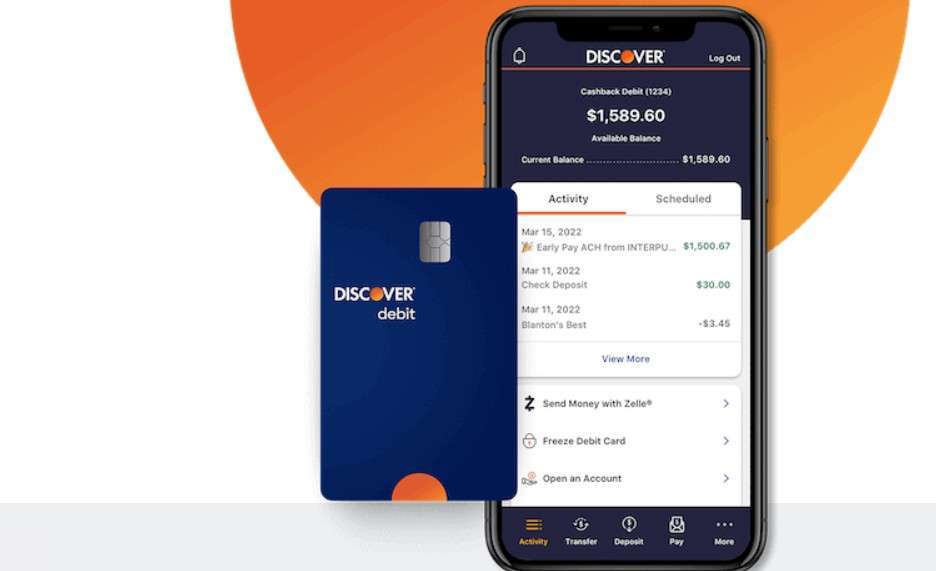For most of us, major expenses like rent, groceries, and car payments draw most of our attention. While that’s an excellent budgeting foundation, if you want to maximize your savings rate, you need to consider all your monthly bills when trying to cut costs.
Thankfully, you don’t have to work alone. Bill negotiation services are a growing niche that helps busy individuals secure better rates for their monthly bills, cancel unused subscriptions, and stay on top of rising service costs.
If you want to ensure you’re getting the best deals possible for your monthly bills, a bill negotiation service can save you time and money.
How Bill Negotiation Services Work
It’s possible to reduce many of your monthly bills just by making a few phone calls. For example, if you’re a loyal Internet customer, calling your provider to ask for a better rate is often a straightforward way to lower your bill. That’s because service providers are generally willing to negotiate to keep your business.
However, these phone calls take time and effort. Additionally, if you have multiple bills and subscriptions to keep track of, it’s easy to delay calling or forget about certain bills altogether.
Bill negotiation services solve this problem by doing the work for you. These services often split the annual savings with you in exchange for successfully lowering a bill or canceling an unused subscription. Typically, that means you pay a percentage of your savings to the bill negotiation service.
For example, if a service charges 40% of your annual savings for lowering your bill and ends up saving you $100 per year, you pay $40 upfront or in monthly installments. However, the other $60 in savings is yours to enjoy.
Ultimately, it isn’t as frugal as calling each provider yourself. However, the amount of time and aggravation you save is worth it if the alternative is putting it off.
What Bills Can I Negotiate?
The best bill negotiation companies are comprehensive in terms of what bills they tackle. Common bill categories include:
Some services also handle medical expenses, offer free insurance quotes, and can detect which subscription services you aren’t using to cancel them.
If you’ve already stopped watching TV, ditched your landline, and found a cheap Internet plan, you probably won’t find too many areas to save with bill negotiation. However, if you have several monthly subscriptions, you could potentially save hundreds of dollars per year through a reputable negotiation service.
The Best Bill Negotiation Services
If you’re tired of wasting money by overpaying for your monthly bills, any of these bill negotiation services are worth considering.
1. BillShark
- Pros: Useful savings calculator; $25 reward bonus; free insurance tool
- Cons: No monthly payment option except a six-month plan
- Price: 40% for bill negotiation; $9 per subscription cancellation
BillShark is one of the most recognizable bill negotiation services on the market, with an appearance on “Shark Tank” and investment from tech mogul Mark Cuban creating quite the splash for this platform.
However, BillShark is more than just a flashy “Shark Tank” pitch. According to BillShark, its platform has saved users more than $10 million in bills since 2016. Additionally, BillShark claims a 90% success rate and that their average client saves approximately $300 per year by negotiating their bills.
BillShark specializes in negotiation, and getting started takes three steps:
- Savings Calculator. Enter your service type, provider, and current monthly payment in the BillShark savings calculator to get an estimate of how much BillShark can save you.
- Upload Bills. Submit a photo or copy of your bills to let a BillShark agent begin negotiating with your service providers on your behalf. If BillShark lowers a bill, they contact you with a breakdown of your savings and a start date for your lower payments. Submitting a bill also pays $25 in BillShark reward dollars, which are redeemable for free gift cards.
- Save and Pay. BillShark sends an invoice three days after a successful bill negotiation. You can pay your invoice through your BillShark account in a one-time payment or set up a six-month payment plan.
BillShark charges 40% of your savings for bill negotiation, and they generally secure lower rates for at least one year. BillShark never changes service providers, extends your contract length, or downgrades your service quality to save money unless you give them permission.
The only time BillShark may change your service provider is to secure more features and perks for less money. While this won’t happen with every bill negotiation, it’s a possibility to be aware of when using BillShark.
You can negotiate a range of bills, including:
- Cable and satellite TV
- Wireless and landline phones
- Internet packages
- Satellite radio
- Home security system subscriptions
Additionally, BillShark can cancel subscriptions for $9 per subscription. If you have subscription box services or other subscriptions that aren’t worth it, it’s a fast way to cancel them and save money in the long run. BillShark also claims they can sometimes secure refunds for subscriptions you haven’t used.
Finally, BillShark also has an insurance calculator to compare your existing insurance policies to other providers to ensure you aren’t overpaying. You can enter homeowners insurance and car insurance policies from more than 30 providers, and this tool is free.
At the very least, BillShark’s free insurance tool is worth using to find opportunities to save money. But if you haven’t called your service providers recently to secure better rates for yourself, BillShark is one of the best bill negotiation services to rely on.
2. BillFixers
- Pros: Comprehensive list of providers; business bill negotiation
- Cons: Expensive compared to other negotiation services
- Price: 50% for bill negotiation
BillFixers is another popular bill negotiation service that claims its average client saves $300 per year on their bills.
BillFixers takes the work out of calling your service provider to negotiate. Once you create your BillFixers account, you can choose from more than 100 service providers to find opportunities to lower your bills. BillFixers begins negotiating after you upload a copy of your bills.
If you save money, BillFixers charges 50% for your first year of savings. Default payments are monthly, and if you cancel or change service providers during the year, it stops charging you for your savings.
BillFixers says it negotiates almost any recurring bill. That includes common bills like Internet, phone plans, and cable TV. However, it can also negotiate home security packages and newspaper subscriptions. Currently, BillFixers doesn’t negotiate medical bills, insurance bills and claims, credit card debt, rent payments, legal fees, or car payments.
If you’re a small-business owner, you can also use BillFixers for business to improve your bottom line. It works with over 100 national providers and local companies to find better rates for services like:
- Payroll software
- Shipping agreements
- Document services
- Software
- Waste management
Ultimately, if you’re a business owner but don’t have time to make phone calls and negotiate, BillFixers is an efficient way to cut small-business costs. Additionally, its pricing for individuals remains competitive, and you never pay unless you save.
3. Truebill
- Pros: Multiple budgeting features to help control spending; smart saving account option
- Cons: Not as useful if you already know how to budget
- Price: 30% – 60% for bill negotiation; premium plan for between $3 to $12 per month
Most bill negotiation services draw the line at lowering your bills. In contrast, Truebill helps you gain control over your finances by providing a comprehensive snapshot of your spending.
Once you download the Truebill app for Android or iOS, you connect your bank account to the app to let Truebill track your spending. In terms of security, Truebill uses industry-standard protocols for storing data, relying on bank-level 256-bit encryption, like other popular financial apps.
After linking your cards, Truebill offers numerous features to help you save money, including:
- Financial Summary. View your credit, cash, and investment balances on your dashboard, track upcoming bills, and set monthly spending goals.
- Subscriptions. Monitor recurring subscriptions and find underused or overpriced ones you wish to cancel.
- Reports. Truebill categorizes expenses, so it’s easy to stick to a budget.
- Lower Bills. Truebill negotiates bills on your behalf and charges anywhere from 30% to 60% of the savings. You begin the negotiation process through the app by taking a photo of your bill, and Truebill never downgrades your plan or changes providers to find savings. Truebill can also secure outage refunds if your Internet goes down.
- Smart Savings. Create a savings goal and let Truebill automatically set money aside to your Truebill smart savings account.
Truebill is free, although there’s a premium plan that costs between $3 and $12 per month. Cost depends on how much you think Truebill premium is worth, and you use a sliding scale within the app to select your monthly payment amount.
Premium unlocks other features like creating unlimited budgets, custom expense categories, and accessing premium chat support. Premium users can also have Truebill cancel subscriptions on their behalf rather than canceling subscriptions themselves. Finally, premium users can enable fee refunds to have Truebill automatically request refunds for bank fees.
Ultimately, Truebill doesn’t focus on lowering bills. However, this is one of the best bill negotiation services if you also want to stop overspending and learn how to control your finances.
4. Trim
- Pros: Free subscription cancellation; lowest bill negotiation rate
- Cons: Expensive premium plan to unlock medical bills and other perks
- Price: 33% for bill negotiation; $99 for an annual premium membership
Trim is another way to automate your savings and cut down on unnecessary bills. Once you create a Trim account, you link your bank account to let Trim analyze your spending patterns. Trim then highlights recurring subscriptions to ensure you understand your monthly charges. If you want to cancel a subscription, Trim will cancel it on your behalf.
Canceling subscriptions is a straightforward way to save money. However, Trim also negotiates bills. Trim can negotiate cable, Internet, phone, and medical bills. You have to upload or send a bill to Trim for them to begin negotiating. If you save money, Trim charges 33% of your total yearly savings.
Trim also makes it easy to get a snapshot of your finances. Your financial dashboard shows recent spending, account balances, and a spending category breakdown. These features aren’t as comprehensive as other personal finance apps like Tiller, but they’re a nice addition for basic budgeting.
If you want to take your savings to the next level, you can try Trim’s premium plan for $99 per year. With premium, you unlock:
- Bank negotiations to lower your credit card APR
- A 4% high-interest savings account for your first $2,000 in savings (your rate drops to 1.5% after $2,000)
- Medical bill negotiation
- Access to coaching with a certified financial planner
- Automatic credit card payment options to help you become debt-free
Furthermore, premium members get free bill negotiation rather than paying 33% of savings. If Trim successfully lowers an expensive monthly bill, that can easily recoup much of the premium membership cost.
There’s a free 14-day trial for premium service, but you don’t need it to benefit from Trim. Trim is an excellent choice if you want a more affordable bill negotiation service and the ability to cancel unwanted subscriptions easily.
5. BillCutterz
- Pros: Useful savings calculator; free insurance tool
- Cons: Must pay a one-time installment to secure a competitive bill negotiation rate
- Price: 50% for bill negotiation or 40% if you pay a one-time payment for savings
If you’re looking for a comprehensive bill negotiation service and don’t need budgeting help, BillCutterz is also worth considering.
BillCutterz has been in business since 2009, making them one of the oldest companies in the space. According to BillCutterz, most of their users save several hundred dollars per year by lowering their bills. If you’re skeptical, you can use their savings calculator to estimate how much money you can save on your bills.
BillCutterz works on a range of bills, including:
- Cable bills and satellite TV
- Internet
- Cellphone and landlines
- Home security
- Satellite radio
- Gym memberships
- Electricity for users living in Texas
You can also find affordable insurance by using BillCutterz to get quotes within a few minutes. However, lowering your bills is the primary reason to try it.
If BillCutterz saves you money, you split the savings. BillCutterz sends you a monthly bill for the amount you owe. For example, if it saves you $30 per month for 12 months, you split the savings with BillCutterz and pay $15 per month. However, if you pay for your savings in one installment, you only pay 40% of your total savings. Thankfully, if you make a one-time payment and eventually cancel your service during the savings period, BillCutterz provides a refund.
Admittedly, it could be a significant one-time expense if BillCutterz finds major savings. However, if you want a straightforward bill negotiation service and don’t mind paying a one-time installment, BillCutterz is a viable alternative to services like BillShark and BillFixers.
6. BillAdvisor
- Pros: Comprehensive list of providers; flexible payment options
- Cons: Expensive bill negotiation unless you pay for a monthly plan
- Price: 50% for bill negotiation or $12.99 per month
Of all bill negotiation services, BillAdvisor is undeniably one of the most expensive options. If you use their free plan, you pay 50% of the savings it secures. Alternatively, you can sign up for a BillAdvisor membership for $12.99 per month.
This pricing structure seems less competitive than most negotiation services at first glance. However, according to BillAdvisor, their average customer saves $830, making the monthly price or steep savings split worth the cost.
Frankly, this seems like an unbelievable amount of money to trim from your monthly bills. However, BillAdvisor does have a comprehensive list of bills they negotiate, including:
- Internet
- Phone
- TV and streaming services
- Energy services
- Home security
- Auto, home, and life insurance
Bill-Advisor also says they can handle almost any subscription, including gym memberships, meal delivery services, and magazines. To begin negotiation, you send copies of your bills through its website, email, or text.
BillAdvisor offers a monthly pricing option because it aims to be a recurring service. The company monitors members’ bills to alert them about ending promotions and lower-cost alternatives. BillAdvisor can also find deals and consistently works to keep your bills low.
Granted, this monitoring service isn’t useful if you don’t have many subscriptions. However, if you want peace of mind that you’re consistently saving money on your monthly bills, the membership cost could be worth it.
7. CoPatient
- Pros: Competitive bill negotiation rate
- Cons: Only useful if you have significant medical expenses and billing errors
- Price: 35% for bill negotiation
Most bill negotiation services don’t handle medical bills. Companies like Trim can tackle medical bills, but if you have high prescription costs or other health-related expenses, you should choose a company that specializes in medical expenses.
CoPatient is one reliable option. According to CoPatient, up to 80% of medical bills have errors that result in extra charges. Plus, if you consider out-of-network costs, bills can rack up even faster.
Thankfully, using CoPatient takes three steps:
- Submit your bills to CoPatient.
- CoPatient staff asks you questions and reviews your bills to spot errors.
- If there’s an opportunity to save, CoPatient negotiates with the health care provider on your behalf.
CoPatient charges 35% of the savings they find, which is also quite competitive in the world of bill negotiation. If you have multiple bills, you can also use CoPatient alongside another negotiation service to effortlessly tackle multiple bill categories.
8. Medical Cost Advocate
Like CoPatient, Medical Cost Advocate helps you negotiate health care-related expenses and takes a portion of the savings if they’re successful.
Medical Cost Advocate also charges 35% of your total savings. If bill negotiation is unsuccessful, you don’t pay, so there’s no risk in trying it to reduce your medical bills. Plus, Medical Cost Advocate can negotiate medical, dental, and health-related bills, so savings aren’t restricted to one area of health care.
The catch is Medical Cost Advocate only begins bill negotiating if your bill is at least $600.
According to the company, savings typically range from 20% to 50%. There’s no lower price guarantee, but the process of submitting a bill is quick, so it’s worth trying:
- Enter patient information, including address, phone number, date of birth, and your insurance provider if you have coverage.
- Add your insurance provider’s information.
- Enter the billing information or upload a copy of your bill that shows charges, the amount paid or due, and whether you have submitted the bill to your insurance carrier.
- Add a credit or debit card to your account so Medical Cost Advocate can charge you if they successfully lower your bills.
Medical Cost Advocate states it takes approximately three days to one week to complete negotiation, but keep the $600 bill minimum in mind before uploading your bill.
Final Word
When it comes to saving money, becoming more frugal is one of the most effective changes you can make. Live within your means, try financial fasting, and try to be more conscious of your spending habits. If you follow these basics, your bank account will thank you.
However, for the monthly bills you simply can’t live without, there are still opportunities to save. If you have time and patience, call your major service providers annually to ask for promotions or better rates. If you threaten to switch to a competitor and have been a loyal customer, chances are you can get a discount.
Alternatively, use a bill negotiation service to simplify your life. Splitting savings is better than not saving any money at all, and you might be surprised how effective these services are at negotiating.
Publisher: Source link











